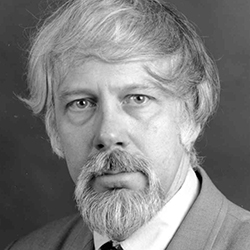Rodrick Wallace Ph.D.
 Research Scientist
Research Scientist
New York State Psychiatric Institute
Email: wallace@nyspi.columbia.edu
Discipline: Epidemiology, Human Ecology
Expertise: Public, Population Health, Urban Health, Epidemeology
Investigator Award 
How Inner-City Decay Affects Metropolitan Regions and the NationAward Year: 1995 Research shows that inner city problems such as AIDS, tuberculosis, and violent crime are not contained within disintegrating urban minority communities where they are most concentrated. Rather, they diffuse outward along the commuting field connecting the city to the suburbs and the suburbs with each other. Dr. Wallace builds on earlier studies using sophisticated methods adapted from population and community ecology and quantitative geography to analyze publicly available, routine administrative data sets. He: 1) extends analysis of urban-to-suburban diffusion beyond eight metropolitan regions (containing 54 million people) previously studied; 2) expands to Harlem and Washington D.C. earlier work in the Bronx on the disintegration process fueling this diffusion; and 3) broadens the analysis to the national travel net, examining the hierarchical spread of inner city markers between metropolitan regions.
Background 
Rodrick Wallace, a research scientist at the New York State Psychiatric Institute, received a B.S. in mathematics and a Ph.D. in physics from Columbia University, and was subsequently tutored in ecosystem analysis by Deborah. A recipient of an Investigator Award in Health Policy Research from The Robert Wood Johnson Foundation, which led to the publishing of his 1999 book, A Plague on Your Houses: How New York Was Burned Down and National Public Health Crumbed. He has published many papers adapting quantitative methods from population, community and ecosystem ecology to the theoretical and empirical analysis of problems of public health and public order. Recently, in cooperation with his son Robert, he has attempted to adapt methods from information theory to the study of evolutionary process in medical sociology, biology and economics.
